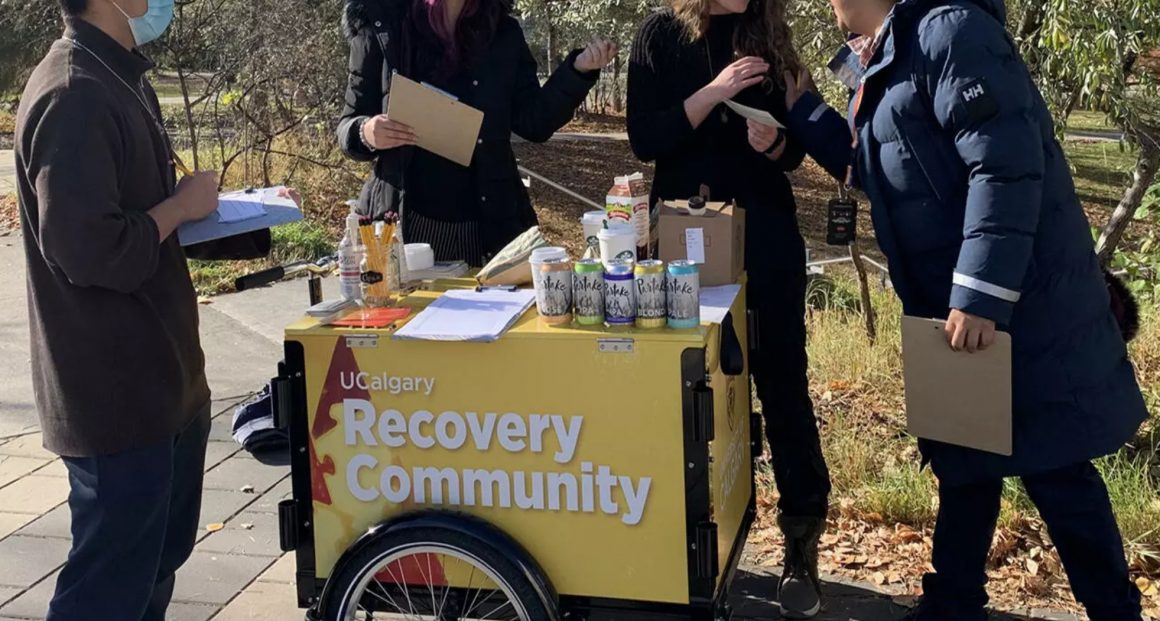
UCRC and Student Residence Services collaborate for substance-free housing
By Vama Saini, February 2 2024—
The University of Calgary is taking a step towards providing a supportive and inclusive environment for students by introducing substance-free housing on campus. The initiative, led by the UCalgary Recovery Community (UCRC) — a collegiate recovery program — and Student Residence Services, aims to create a safe space for students who are in recovery or choose to abstain from substance use.
In an interview with the Gauntlet, Tabitha Pruden, the UCRC’s project coordinator, elaborates on this initiative and what it entails.
“One of the five pillars of collegiate recovery programming is having on-campus substance-free housing,” she explained. “We want to make a safe space for students who either are in recovery or choose not to engage in substance use, whether that’s drugs or alcohol so that they have that option and have people who live with who create a community so they can have people who are in the same sort of place as them.”
According to Pruden, the campus environment can often be perceived as threatening for students dealing with substance use issues or those in recovery.
“There’s been lots of research around how [campuses] are recovery-threatening environments, and it can be students, especially right out of high school, who come into these environments and it’s kind of seen as a party culture,” she said.
“Then you got this other factor of students who are in recovery who are coming to university with the same sort of party-culture mentality and trying to figure out how to navigate that in terms of making friends, feeling comfortable, whether or not they can even disclose they are in recovery,” she continued.
“It definitely puts many layers of pressure on students, no matter what their substance use intake is.”
Recent data from Canadian Campus Wellbeing indicates that 11 per cent of UCalgary students identify as being in recovery from substance use. This data played a crucial role in the decision to pilot substance-free housing.
“Just knowing the fact that about 7,000 students here at U of C would meet the criteria for substance use disorder is a huge amount. The other thing that we are battling is the stigma around it. We are still trying to get the word out that we are here, but I think there’s still that barrier that students are facing because it’s uncomfortable to say you are in recovery,” said Pruden.
The substance-free housing pilot program involves a Community Advisor (CA) to support students in substance-free housing. The four students selected for the pilot this year were chosen through one-on-one interviews to ensure a commitment to a substance-free lifestyle.
“The students who applied either had to be in recovery or wanting to live in a substance-free environment,” said Pruden. “Whether they are either in recovery or coming from a place of cultural, religious or personally not wanting to use substances, we were open to that.”
The initiative aligns with the UCalgary Campus Mental Health Strategy and the university’s equity, diversity, inclusion and accessibility (EDIA) strategy.
“One thing that lots of people don’t know is that being in recovery or dealing with a substance-use issue or behavioural addiction is a protected identity. It’s actually considered to be a disability,” said Pruden. “Just like mental health, it’s under the Human Rights legislation, and it’s protected. So in terms of aligning with EDIA strategy, it’s making sure those students who are in recovery are getting that support that they need because there are so many barriers to being in university, to applying to university and for finding a safe space to be.”
Substance-free housing contributes to building a sense of community among students with shared goals and values.
“I have personally met with one of [the students], and he has said it’s just been really great. He has enjoyed being with other students who are in the same sort of lifestyle as him, and he didn’t have anything bad to say about it. He has said that it was nice to have a quiet space where they are supportive of each other too,” said Pruden.
“We have partnered up with the CA at Cascade Hall to run the trivia around harm reduction and substance use. We have also partnered with the CA at Yamnuska Hall at the end of this month as well. So the word is starting to get among the CAs to share with their building and floors as well.”
Residence CAs receive specialized training on harm reduction, substance use and supporting students in substance-free housing.
“The [previous] project coordinator did a presentation for the new CAs before they started. It was about Harm Reduction and a little bit about different substances as well because sometimes people are not familiar with names [for substances] we think that someone from Calgary may not know. [They also discuss] what over-consumption of substances can look like and how to support with that,” she said.
With plans to increase substance-free units to 12 beds for the next academic year, Pruden remarked that the challenge lies in scaling up while maintaining the personalized approach of one-on-one interviews. The program envisions expansion into first-year buildings and exploring off-campus recovery housing in the future.
“One of the challenges was that we were doing one-on-one interviews with students, so as we begin to scale it up, that could cause an issue since we are a small team. It’s really helpful to meet one-on-one with the students to ensure that there’s a commitment to substance-free housing and understand their reasoning behind wanting to be a part of that,” said Pruden.
To learn more about the UCRC and their substance-free housing initiative, visit their website.
